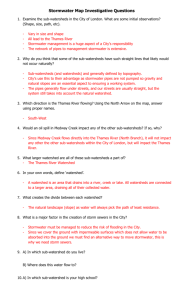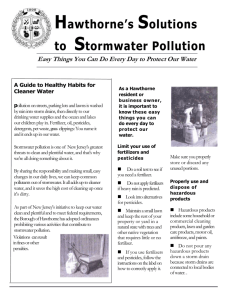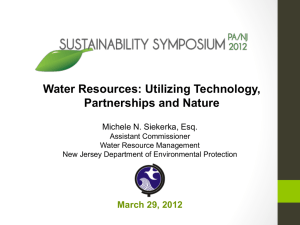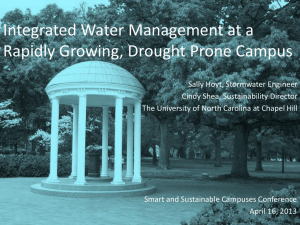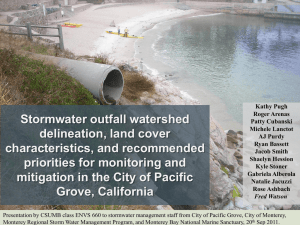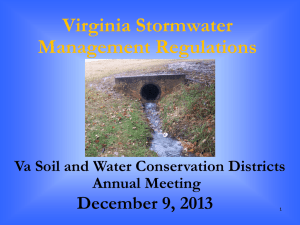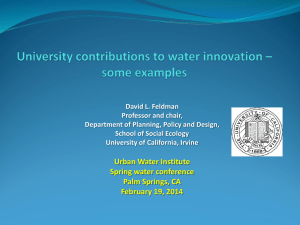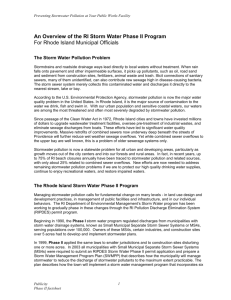Final Video script_0..
advertisement
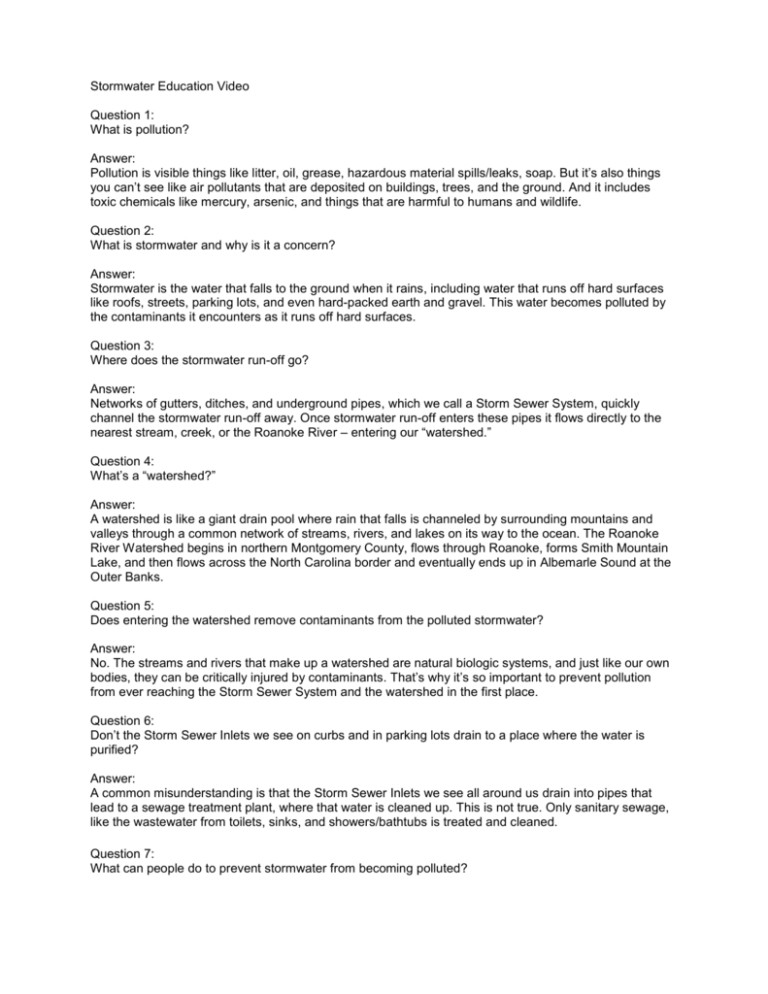
Stormwater Education Video Question 1: What is pollution? Answer: Pollution is visible things like litter, oil, grease, hazardous material spills/leaks, soap. But it’s also things you can’t see like air pollutants that are deposited on buildings, trees, and the ground. And it includes toxic chemicals like mercury, arsenic, and things that are harmful to humans and wildlife. Question 2: What is stormwater and why is it a concern? Answer: Stormwater is the water that falls to the ground when it rains, including water that runs off hard surfaces like roofs, streets, parking lots, and even hard-packed earth and gravel. This water becomes polluted by the contaminants it encounters as it runs off hard surfaces. Question 3: Where does the stormwater run-off go? Answer: Networks of gutters, ditches, and underground pipes, which we call a Storm Sewer System, quickly channel the stormwater run-off away. Once stormwater run-off enters these pipes it flows directly to the nearest stream, creek, or the Roanoke River – entering our “watershed.” Question 4: What’s a “watershed?” Answer: A watershed is like a giant drain pool where rain that falls is channeled by surrounding mountains and valleys through a common network of streams, rivers, and lakes on its way to the ocean. The Roanoke River Watershed begins in northern Montgomery County, flows through Roanoke, forms Smith Mountain Lake, and then flows across the North Carolina border and eventually ends up in Albemarle Sound at the Outer Banks. Question 5: Does entering the watershed remove contaminants from the polluted stormwater? Answer: No. The streams and rivers that make up a watershed are natural biologic systems, and just like our own bodies, they can be critically injured by contaminants. That’s why it’s so important to prevent pollution from ever reaching the Storm Sewer System and the watershed in the first place. Question 6: Don’t the Storm Sewer Inlets we see on curbs and in parking lots drain to a place where the water is purified? Answer: A common misunderstanding is that the Storm Sewer Inlets we see all around us drain into pipes that lead to a sewage treatment plant, where that water is cleaned up. This is not true. Only sanitary sewage, like the wastewater from toilets, sinks, and showers/bathtubs is treated and cleaned. Question 7: What can people do to prevent stormwater from becoming polluted? Answer: Don’t litter – especially cigarette butts, which produce cancer-causing toxins. Make sure laundry water and other “grey” water is discharged into a sanitary sewer pipe. Keep grass clippings and brush out of the street or ditch. Don’t over-apply lawn chemicals. Pick up pet waste, and use a broom, not a water hose, to clean up debris on driveways and sidewalks. Question 8: What about businesses? Do their operations also pose a threat to clean stormwater? Answer: Yes, they can. Businesses should establish and maintain secure storage of all wastes to prevent them from becoming litter or leaching harmful residues if stormy winds and rain kick up. It is also important to secure all bulk liquid storage with secondary containment to prevent accidental spills from reaching the storm sewers. And business operators should also periodically inspect and clean any stormwater drainage systems on their property. Question 9: What are the City of Roanoke’s roles and responsibilities for stormwater? Answer: Like other local governments in Virginia and around the country, the City of Roanoke is obligated by law to operate and maintain its storm sewer system, and related policies and procedures, in a manner that conforms to the provisions of the Federal Clean Water Act, and the related Commonwealth of Virginia laws and regulations. Question 10: What could happen if the city does not abide by these laws and regulations? Answer: The city is issued a storm water permit from the state to operate our Storm Sewer System. This permit requires us to perform, document, and report annually on our efforts to educate the public on stormwater pollution prevention issues, and investigate and respond to illicit discharges. Failure to comply with our permit conditions can result in heavy fines and penalties. Question 11: As a City employee, how does stormwater relate to my job? Answer: Because the city is required by law to prevent stormwater pollution, all employees must be aware of and help educate others about stormwater. People doing business with the city may be engaged in, or considering activities that pose a higher than normal risk for causing stormwater pollution. In your job, you may be in a position to help inform others about these issues and their duty to address the risks associated with their actions proactively.


